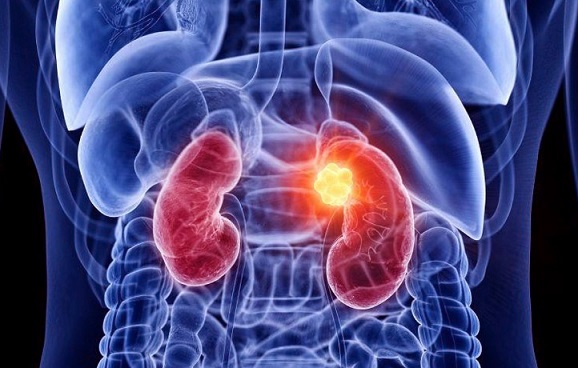Nikhil Prasad Fact checked by:Thailand Medical News Team Nov 24, 2025 3 months, 16 hours, 24 minutes ago
Medical News: A Powerful Natural Compound Shows New Hope
A new study has revealed that Olivomycin A, a rare antibiotic derived from soil bacteria, may offer an important breakthrough in the fight against renal cell carcinoma, the most common and often deadly form of kidney cancer. The research team from National Chung Hsing University Taiwan, Feng Yuan Hospital Taiwan, Central Taiwan University of Science and Technology Taiwan, Jen Ai Hospital Taiwan and the Gause Institute of New Antibiotics Russia found that this natural compound can slow cancer growth, block cancer spread and even force diseased cells to self-destruct. These discoveries, detailed in this
Medical News report, give hope for future therapies that could work even when patients carry difficult to treat gene mutations.
 Researchers uncover how Olivomycin A powerfully shuts down kidney cancer cell growth and spread.
How Olivomycin A Weakens Kidney Cancer Cells
Researchers uncover how Olivomycin A powerfully shuts down kidney cancer cell growth and spread.
How Olivomycin A Weakens Kidney Cancer Cells
The scientists studied two types of kidney cancer cells. One carried normal p53 genes, which help control cell damage, while the other had both p53 and PTEN mutations, which usually make tumors stronger and harder to treat. Olivomycin A was able to reduce colony formation, slow cell multiplication and sharply block cell migration in both types of cancer cells. This means the compound not only stops cancer from growing but also prevents it from spreading to other organs.
The study showed that Olivomycin A directly interferes with processes that cancer cells use to invade surrounding tissues. It reverses a harmful cellular change called epithelial to mesenchymal transition, or EMT, which is usually responsible for making cancer cells more mobile and aggressive. After treatment, invasive markers like Snail and N cadherin dropped sharply, while protective markers such as E cadherin and ZO 1 increased. These changes restored more normal cell behaviors and weakened the cancer cell’s ability to travel.
Triggering Self Destruction Inside Tumor Cells
The research also found that Olivomycin A forces kidney cancer cells into apoptosis, a natural self-destruction pathway that many cancers resist. In cells with healthy p53, the compound activated the intrinsic mitochondrial pathway. In the more dangerous mutant cells, Olivomycin A triggered multiple death signals at once, including caspase 8, Bid truncation, cytochrome c release and strong PARP cleavage. These events show that the drug can push even resistant cancer cells toward irreversible collapse.
Severe Stress Targets Mutated Cancer Cells Even More Strongly
One of the most striking findings was that Olivomycin A caused far more damage to cells with mutated p53 and PTEN than to normal ones. These mutation carrying cells experienced intense DNA damage, major spikes in harmful reactive oxygen species and strong lysosomal activation. This led to rapid mitochondrial breakdown, driven partly through the PINK1 pathway. The antioxidant NAC was even able to reverse some of these damaging effects, proving that oxidative stress plays a central role.
trong>Conclusions
This study demonstrates that Olivomycin A is a rare compound capable of striking kidney cancer cells through several powerful mechanisms at the same time. It slows growth, blocks spread, forces apoptosis and damages the energy making machinery of cancer cells, especially those carrying harmful mutations that normally make treatment harder. These combined effects suggest that Olivomycin A may become a promising future therapy for aggressive renal cancers once more safety studies and clinical testing are completed.
The study findings were published in the peer reviewed journal: Antioxidants.
https://www.mdpi.com/2076-3921/14/11/1348
For the latest Cancer research, keep on logging to Thailand Medical News.
Read Also:
https://www.thailandmedical.news/articles/cancer
